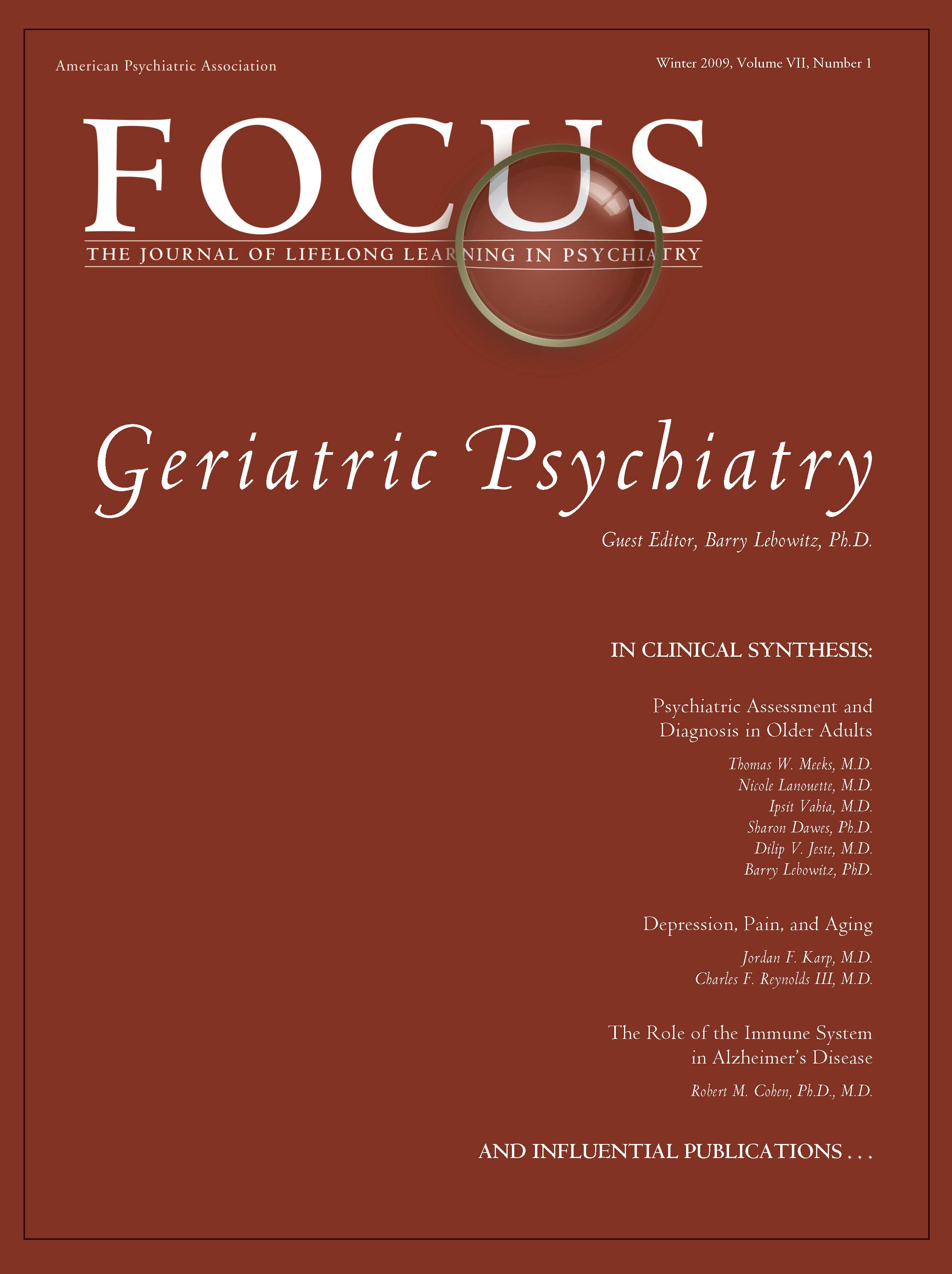Diagnosis and Treatment of Sleep Disorders in Older Adults
Abstract
Among the most common complaints of older adults are difficulty initiating or maintaining sleep. These problems result in insufficient sleep at night, which then results in an increased risk of falls, difficulty with concentration and memory, and overall decreased quality of life. Difficulties sleeping, however, are not an inevitable part of aging. Rather, these sleep complaints are often secondary to medical and psychiatric illness, the medications used to treat these illnesses, circadian rhythm changes, or other sleep disorders. The task for the geriatric psychiatrist is to identify the causes of these complaints and then initiate appropriate treatment.
(Reprinted with permission from American Journal of Geriatric Psychiatry 2006; 14:95–103)



